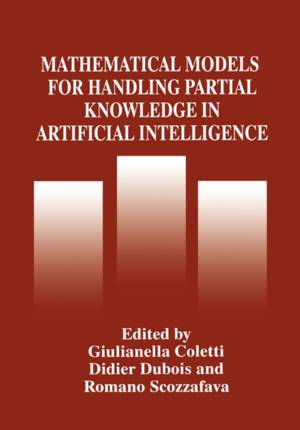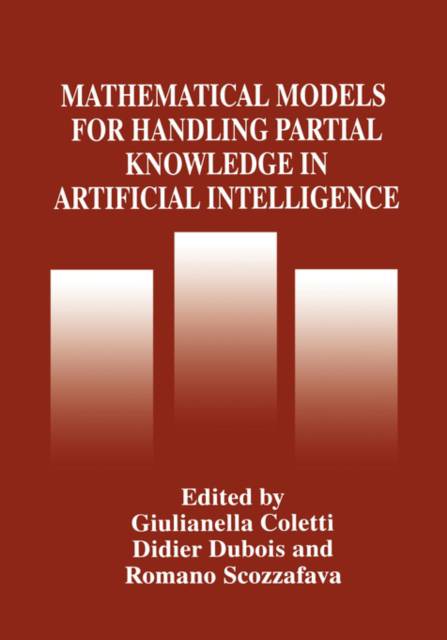
- Retrait gratuit dans votre magasin Club
- 7.000.000 titres dans notre catalogue
- Payer en toute sécurité
- Toujours un magasin près de chez vous
- Retrait gratuit dans votre magasin Club
- 7.000.0000 titres dans notre catalogue
- Payer en toute sécurité
- Toujours un magasin près de chez vous
Mathematical Models for Handling Partial Knowledge in Artificial Intelligence
187,95 €
+ 375 points
Description
Knowledge acquisition is one of the most important aspects influencing the quality of methods used in artificial intelligence and the reliability of expert systems. The various issues dealt with in this volume concern many different approaches to the handling of partial knowledge and to the ensuing methods for reasoning and decision making under uncertainty, as applied to problems in artificial intelligence. The volume is composed of the invited and contributed papers presented at the Workshop on Mathematical Models for Handling Partial Knowledge in Artificial Intelligence, held at the Ettore Majorana Center for Scientific Culture of Erice (Sicily, Italy) on June 19-25, 1994, in the framework of the International School of Mathematics "G.Stampacchia". It includes also a transcription of the roundtable held during the workshop to promote discussions on fundamental issues, since in the choice of invited speakers we have tried to maintain a balance between the various schools of knowl- edge and uncertainty modeling. Choquet expected utility models are discussed in the paper by Alain Chateauneuf: they allow the separation of perception of uncertainty or risk from the valuation of outcomes, and can be of help in decision mak- ing. Petr Hajek shows that reasoning in fuzzy logic may be put on a strict logical (formal) basis, so contributing to our understanding of what fuzzy logic is and what one is doing when applying fuzzy reasoning.
Spécifications
Parties prenantes
- Editeur:
Contenu
- Nombre de pages :
- 308
- Langue:
- Anglais
- Collection :
Caractéristiques
- EAN:
- 9780306450761
- Date de parution :
- 31-08-95
- Format:
- Livre relié
- Format numérique:
- Genaaid
- Dimensions :
- 178 mm x 254 mm
- Poids :
- 784 g

Les avis
Nous publions uniquement les avis qui respectent les conditions requises. Consultez nos conditions pour les avis.





